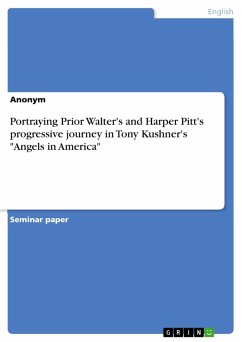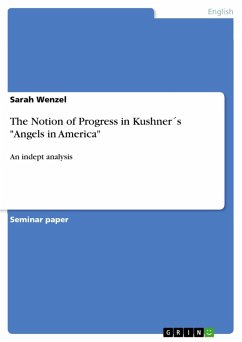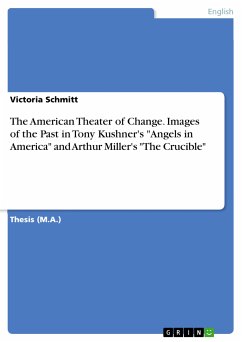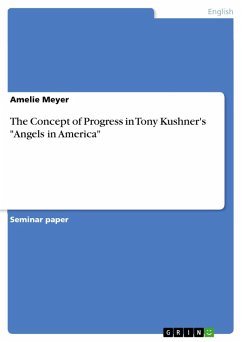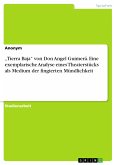Seminar paper from the year 2004 in the subject American Studies - Literature, grade: 1, Free University of Berlin (John-F.-Kennedy Institut), language: English, abstract: Much has been written about the homosexual and political playwright Tony Kushner. Interestingly, not so much has been said about his Jewish background and its impact on his dramatic work. Especially, his most acknowledged play "Angels in America - A Gay Fantasia on National Themes" which is mainly set in New York City "this strange place, in the melting pot where nothing melted" as Rabbi Isidor Chemelwitz observes in the first scene of "Millennium Approaches", is highly concerned with Judaism in general and American Jewry in particular. Naturally, different readings of Kushner's two-part play are possible. Nevertheless, it is crucial to reveal and analyze the importance of the Jewish tone and setting in "Angels in America" to fully understand Kushner's complex work. Kushner picks out the topic of religion and traditional heritage in our secular, modern world as one of his central themes. As Hilary de Vries wrote in her Chicago Tribune critique, "Kushner credits much of his interest in religion to his family background as part of the little known but thriving Jewish community in [Lake Charles] Louisiana." When Kushner moved to New York City in 1974, the Jewish population of the city was over one million making it the largest Jewish community in the world. Even though "Kushner struggles with an ambivalence toward Judaism due to homophobic traditions within his faith," as James Fisher stated, he nevertheless strongly connects to his own Eastern European roots. Kushner's ambivalence is that of American Jewry in general, being torn between the modern, secular society and historical ties to ethnic and religious identity. This dilemma is put forward through the play's fine-nuanced Jewish characters. Furthermore, the play circles around general religious allegories, which origins can be traced back to writings of Judaism, such as the Old Testament and the Kabbalah, as well as to Christian traditions.
Dieser Download kann aus rechtlichen Gründen nur mit Rechnungsadresse in A, B, BG, CY, CZ, D, DK, EW, E, FIN, F, GR, HR, H, IRL, I, LT, L, LR, M, NL, PL, P, R, S, SLO, SK ausgeliefert werden.



